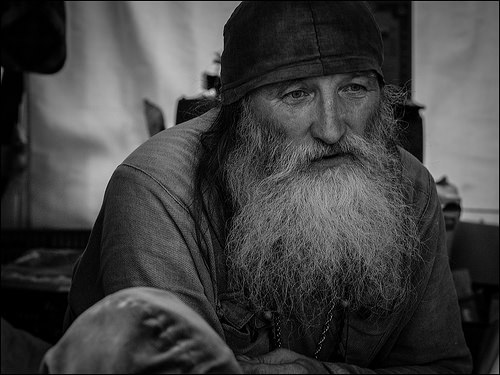Broken people or broken system?
James Whitford, Executive Director Watered Gardens Gospel Rescue Mission – Published in The Joplin Globe February 5, 2012
Are the people broken or is the system broken? If you walk into our rescue mission, it may seem the people are broken. But it’s a rescue mission. It just feels that way. And sometimes, it just looks that way. That undone, unkempt and unloved person with a thread worn stocking cap is slumped over a table where some other look-alikes commune over coffee with an unsettling ease as if the man’s condition was merely one of their shadows. But they’ve seen it before. And so have we. Is it the drunk? Is it the meth addict who’s cycled out? No. It’s “Steve.” And yes, he’s broken.
Steve is an addict. He had been through our mission some time ago, was completely clean for several weeks and beamed then with the youth intended for his mid-twenties frame. When he fell “off the wagon,” he had to make a decision: be restored by the community who had relationally invested in his life or return to the help he had sought before. He chose the latter. Days later, after a medical discharge, he showed up with a hazard-labeled bag of six bottles: Risperdal, Klonopin, Lithium, Cymbalta, Buspirone and Zolpidem. In this struggling addict’s hands were anti-psychotics, muscle relaxers, mood stabilizers, anti-depressents, hypnotics and anti-anxiety meds. They were all prescribed on one day by the same psychiatrist. The next day, Steve was unresponsive on a ventilator in ICU from over-dosing.
Unfortunately, problems with medication abuse are not unique. Many times I hear the homeless and poor discuss hope of housing assistance or disability income via mental health or pain-related diagnoses when I know the true need is to be loved and challenged. The system seems detrimentally weighted to incentivize the poor to seek an illness. I know. That’s a hard pill to swallow. Making that pill even larger, the pharmaceutical industry plays its part in the incentivizing process, as well. But there are some who resist. Just a few days ago, a man in our shelter, quite seemingly in his right mind, reported with disappointment, “They said they can’t help me with housing unless I get on medication.” And another, contingently released from jail, “They said I have to take these pills to stay out of jail, but I don’t really think I need them.” I think he’s right. I’m the one who visited him while incarcerated when he was on no medication, clearer, calmer and more responsive than I had ever known him to be.
The next time you see a person on the streets that some kids might label a “zombie” or someone else might mistakenly label a drunk, just consider first that he or she may simply be a broken person that sought help from a broken system.
As I see it from the trenches,
James Whitford



